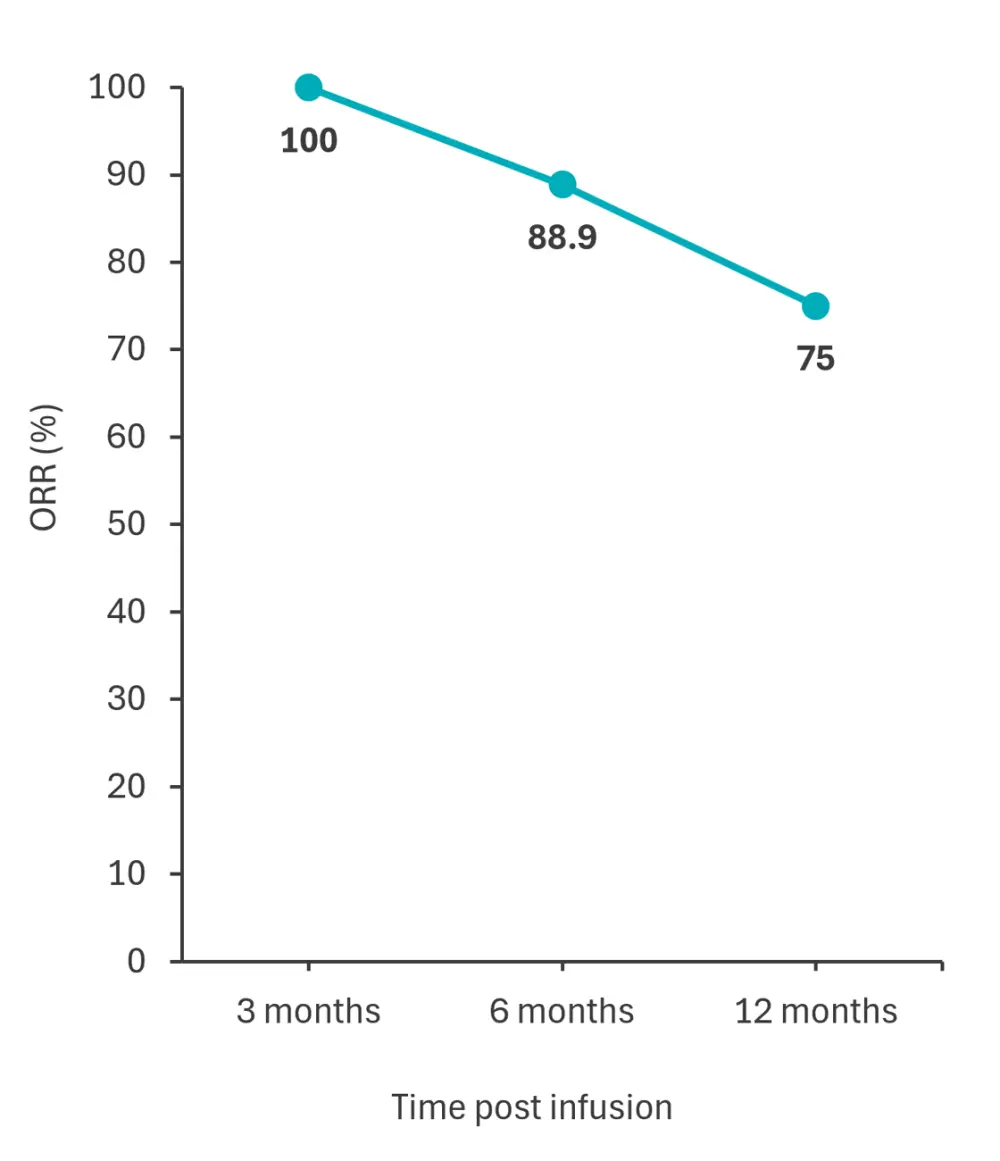All content on this site is intended for healthcare professionals only. By acknowledging this message and accessing the information on this website you are confirming that you are a Healthcare Professional. If you are a patient or carer, please visit Know ALL.
The all Hub website uses a third-party service provided by Google that dynamically translates web content. Translations are machine generated, so may not be an exact or complete translation, and the all Hub cannot guarantee the accuracy of translated content. The all and its employees will not be liable for any direct, indirect, or consequential damages (even if foreseeable) resulting from use of the Google Translate feature. For further support with Google Translate, visit Google Translate Help.
The ALL Hub is an independent medical education platform, sponsored by Amgen, Autolus, Jazz Pharmaceuticals, and Pfizer and supported through an educational grant from the Hippocrate Conference Institute, an association of the Servier Group. Funders are allowed no direct influence on our content. The levels of sponsorship listed are reflective of the amount of funding given. View funders.
Now you can support HCPs in making informed decisions for their patients
Your contribution helps us continuously deliver expertly curated content to HCPs worldwide. You will also have the opportunity to make a content suggestion for consideration and receive updates on the impact contributions are making to our content.
Find out more
Create an account and access these new features:
Bookmark content to read later
Select your specific areas of interest
View ALL content recommended for you
Safety and efficacy of donor-derived anti-CD19 CAR T-cell therapy for R/R B-ALL post-allo-HSCT
Allogeneic hematopoietic stem cell transplantation (allo-HSCT) is one of the most effective treatment options for patients with B-cell acute lymphoblastic leukemia (B-ALL). However, relapse post-allo-HSCT is common and associated with poor prognosis and limited treatment options. Strategies to treat B-ALL after transplant relapse are needed.
Recently, Luo et al.1 published results in eClinicalMedicine from a single arm, phase I trial (NCT04516551) investigating the efficacy and safety of GC007g, a donor-derived anti-CD19 CAR T-cell therapy, for the treatment of patients with relapsed/refractory B-ALL who have relapsed after allo-HSCT. We summarize the key results below.
Study design1
- Included patients aged 18–70 years with B-ALL who have relapsed post-allo-HSCT and an Eastern Cooperative Oncology Group status of ≤1.
- Treatment consisted of a single dose of GC007g infusion at 2 dose levels:
- 6 × 105/kg CAR T cells, or
- 2 × 106 /kg CAR T cells.
- The primary objective was safety, including the incidence of dose-limiting toxicity and adverse events.
- Secondary objectives included overall response rate, progression-free survival (PFS), and overall survival (OS).
Key findings1
- A total of nine patients successfully received GC007g infusion at:
- 6 × 105/kg (n = 3); or
- 2 × 106 /kg (n = 6).
- The median time from leukapheresis to infusion was 33 days
- The median follow-up time was 475 days
- At 28 days post infusion, eight patients achieved a complete response with incomplete count recovery, while one patient achieved a complete response.
- All patients achieved undetectable measurable residual disease.
- All patients achieved an overall response at 3 months post infusion (Figure 1).
Figure 1. ORR at 3-, 6- and 12-months post infusion in patients treated with GC007g*

ORR, overall response rate.
*Adapted from Luo, et al.1
- The estimated 1-year OS rate was 85.7%
- The estimated 1-year PFS rate was 77.8%
- The median OS, PFS, and duration of response was not reached
- One patient experienced a dose-limiting toxicity at 4 days post infusion
- All patients experienced cytokine release syndrome
- Overall, 89% of cases were Grade 1/2 with Grade 3 cytokine release syndrome reported in one patient
- There were no cases of immune effector cell-associated neurotoxicity syndrome
- Grade ≥3 hematologic adverse events were experienced by all patients:
- Neutropenia (n = 9)
- Lymphocytopenia (n = 7)
- Thrombocytopenia (n = 2)
- Anemia (n = 3)
| Key learnings |
|
References
Please indicate your level of agreement with the following statements:
The content was clear and easy to understand
The content addressed the learning objectives
The content was relevant to my practice
I will change my clinical practice as a result of this content

